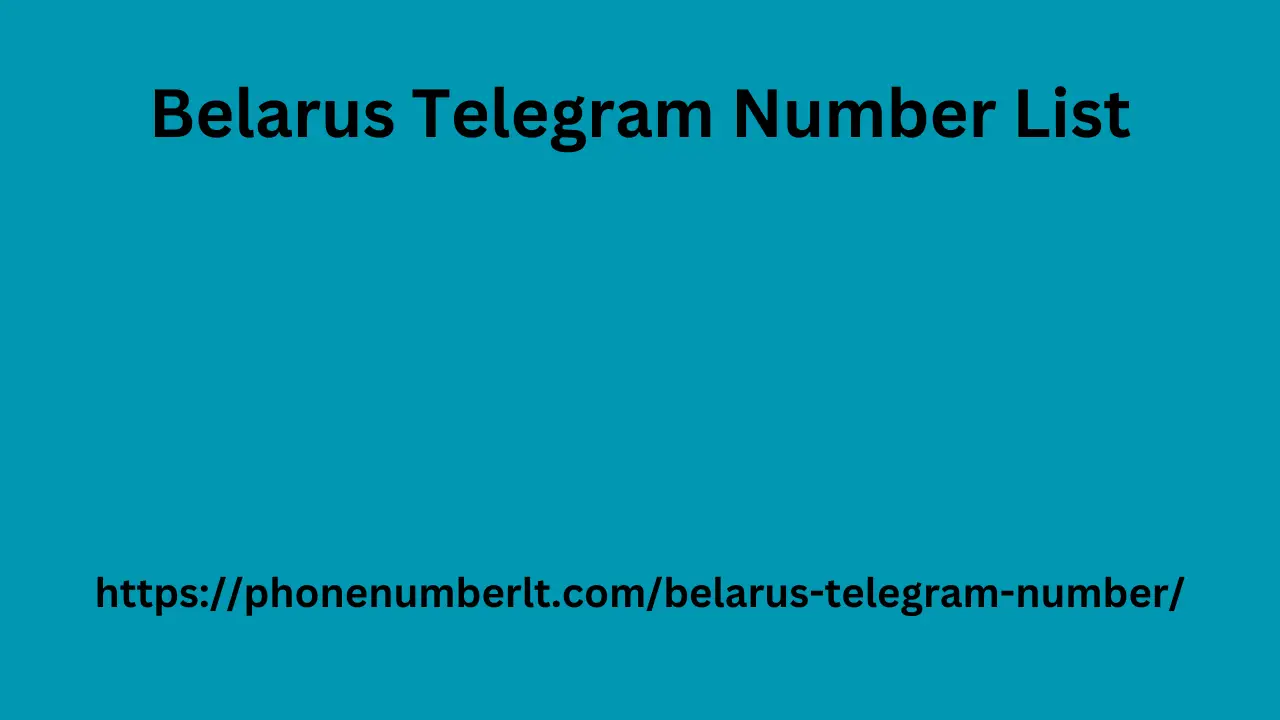Random numbers are sequences of numbers that appear to have no predictable pattern. They are generated using various mathematical algorithms and are widely used in computer science, statistics, and other fields. In the context of user privacy, random numbers can be a powerful tool for protecting sensitive information and enhancing user trust. Belarus Telegram Number List
2. The Benefits of Using Random Numbers for User Privacy

Anonymization: Random numbers can be used to anonymize data, making it difficult to identify individuals. This can help to protect user privacy and comply with data protection regulations.
Data Masking: Random numbers can be used to mask sensitive data, such as credit card numbers or social security numbers, making it less valuable to attackers.
Randomized Response Techniques: Random numbers can be used in randomized response techniques, which allow individuals to answer sensitive questions without revealing their true response. This can encourage honest and accurate responses.
Differentially Private Algorithms: Random numbers can be used in differentially private algorithms, which add noise to data to protect individual privacy while still allowing for meaningful analysis.
Security: Random numbers are used in various security protocols, such as encryption and authentication, to protect user data from unauthorized access.
3. Methods for Using Random Numbers to Enhance User Privacy
Randomization: Random numbers can be used to randomly shuffle or permute data, making it more difficult to identify individuals.
Noise Addition: Random noise can be added to data to obscure individual values and make it harder to identify specific individuals.
K-Anonymity: K-anonymity ensures that each individual's data cannot be distinguished from at least k-1 other individuals in the dataset.
L-Diversity: L-diversity ensures that each individual's data has at least l distinct values for a sensitive attribute, making it harder to identify individuals based on that attribute.
Differential Privacy: Differential privacy adds noise to data in a way that preserves the overall statistical properties of the data while protecting individual privacy.
4. Best Practices for Using Random Numbers to Enhance User Privacy
Ethical Considerations: Always use random numbers ethically and responsibly. Avoid using them to manipulate data or mislead individuals.
Legal Compliance: Ensure that your use of random numbers complies with all applicable laws and regulations, including data protection laws such as GDPR and CCPA.
Data Minimization: Collect only the data that is necessary for your purposes and avoid collecting excessive or unnecessary information.
Transparency: Be transparent with users about your privacy practices and how you use random numbers to protect their data.
Regular Review: Regularly review and update your privacy practices to ensure that they remain effective and compliant with evolving regulations.
5. Conclusion
Random numbers are a powerful tool for enhancing user privacy and protecting sensitive information. By understanding the different methods for using random numbers and following best practices, you can ensure that your organization is committed to data privacy and security.
